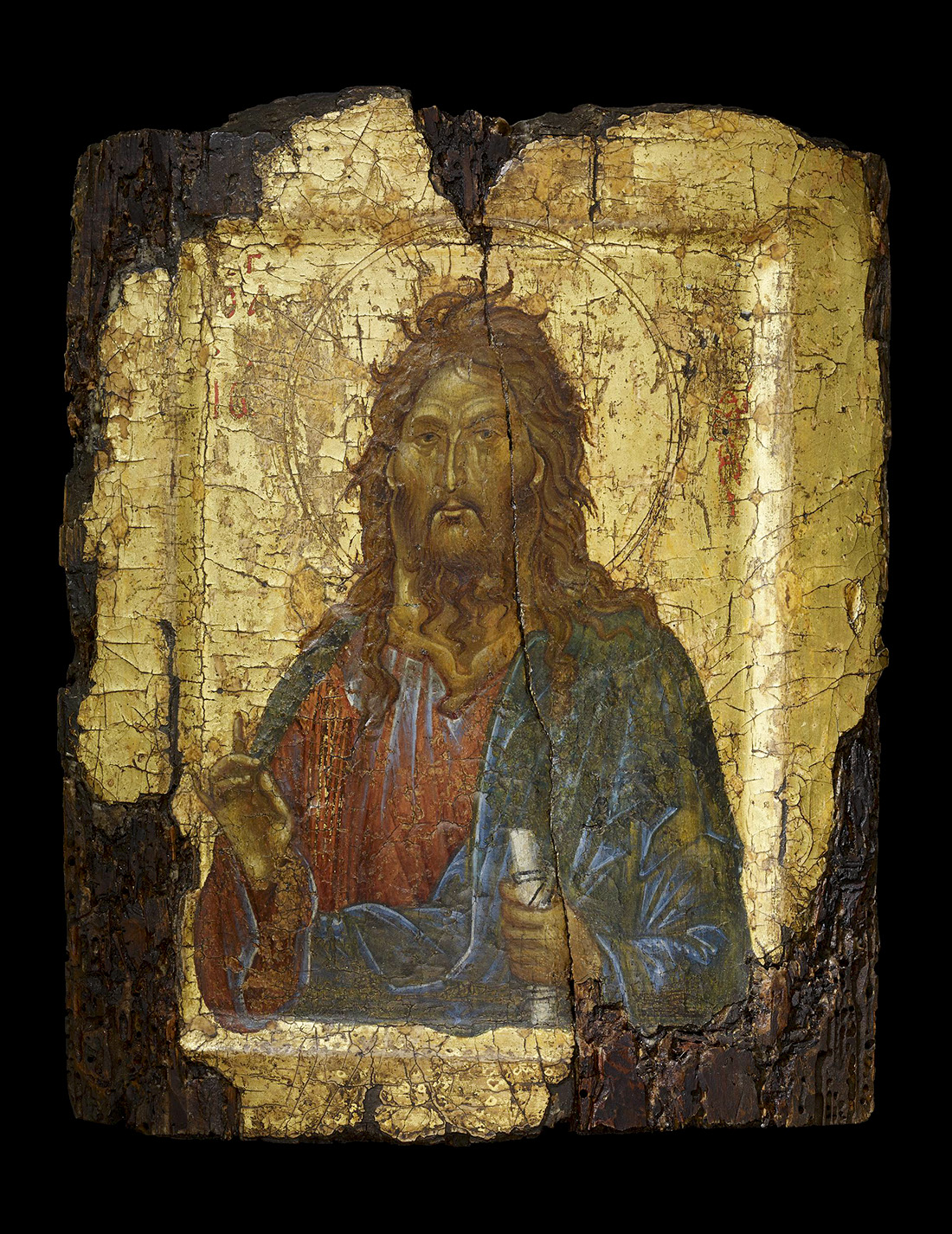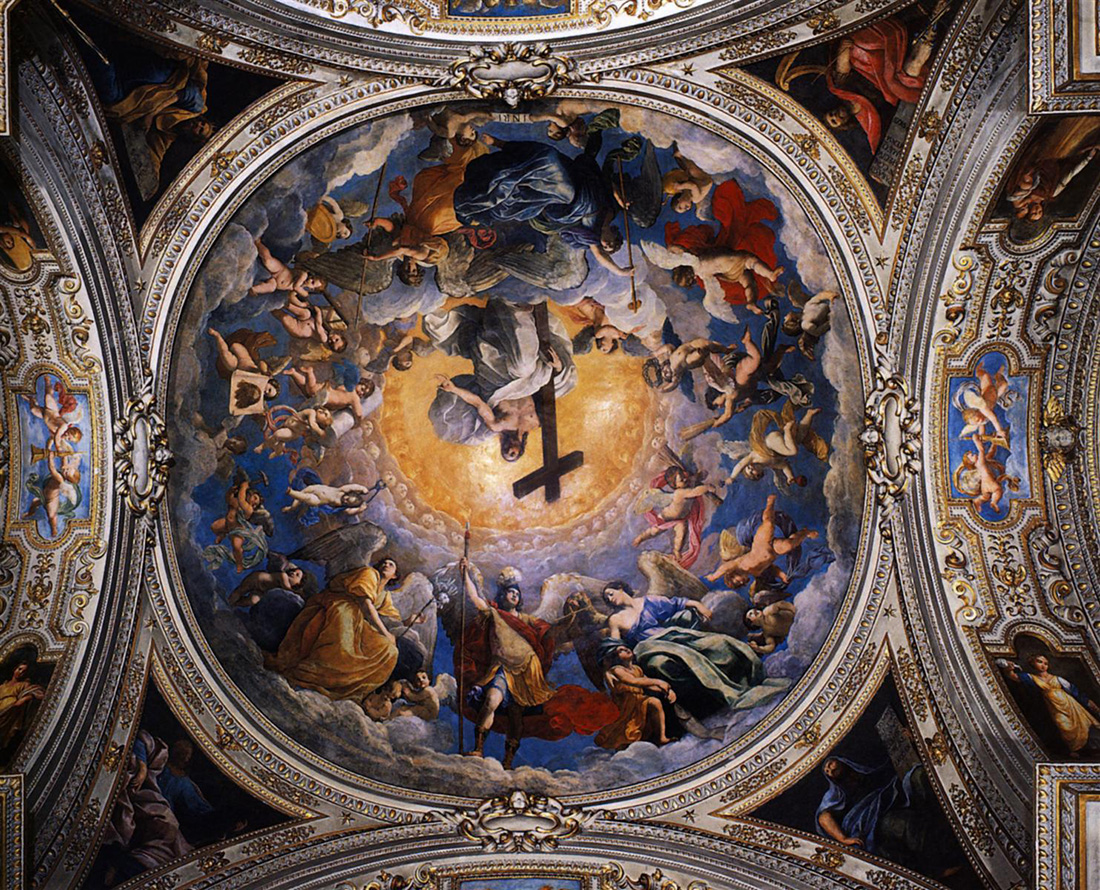Sunday in the 2nd Week of Advent: Isaiah 40:1-5, 9-11, 2 Peter 3:8-14, Mark 1:1-8.
The second week of Advent is marked by this phrase: Prepare the Way of the Lord! We hear it from Isaiah, and 800 years later from St. John the Baptist, and 50 years later from St. Mark in his gospel, and 2,000 years later we hear it in our churches. This is our Christian clarion — the loud, clear, brassy call that something of ultimate importance comes this way. It is our King, our Lord and Savior. We must make way for Him, prepare for Him; but how exactly do we do this?

Today’s readings provide the answer: we are to make way for Him in our hearts and in our minds by leveling mountains and valleys, by acknowledging our sins, and by living in holiness and devotion. But we should not get too wrapped up in what we are doing because all of this is a job of scouring of ourselves in order to let the Lord come into our beings and reign there. It is only the Lord who can do the work of sanctifying, of saving, of pouring out saving grace. We must simply scrub the house and make it as pristine as possible for the Lord to inhabit.
Isaiah uses imagery of the land to emphasize the level of preparation that must be made: “Make straight in the wasteland a highway for our God! Every valley shall be filled in, every mountain and hill shall be made low; the rugged land shall be made a plain, the rough country, a broad valley.” Remember, this is Isaiah’s vision of what John the Baptist will be saying. We know that John’s message was a spiritual one: “I have baptized you with water; he will baptize you with the Holy Spirit.” Thus, let’s understand that Isaiah is speaking of a spiritual landscape. So, speaking of one’s soul, what vision does Isaiah provide? One of a great leveling — mountains lowered and valleys raised to create a wide plain, rough country tamed and made into a broad valley. This is a type of domestication, an ordering. What might loom in our hearts as a mountain? Perhaps unfilled ambitions. What stretches out before us like a deep valley? Our fears. What is rough country, hard to traverse? Perhaps distractions, little events in the grand scheme that we make into large things. Isaiah sees that John will ask us to perform an internal ordering, to wipe out the worldly ambitions, fears, distractions, and sins.
In return, John baptizes people in the Jordan River. Jews had long practiced mikveh, a ritual cleaning in “living water” (a natural, running water source). Mikveh is practiced so that the person can be considered ritually pure and resume religious rites. It is used for men after normal emissions of semen and for women after childbirth or menstruation (among several other reasons). But something else is going on with John. As St. Mark relates, the Jews “were being baptized by him in the Jordan River as they acknowledged their sins.” Could these sins have been the same as those for mikveh? Perhaps, but the verse seems to encompass more than these physical impurities. Especially as it is linked to Isaiah’s prophecy and the spiritual leveling as part of the anticipation of the coming of the Lord, John’s baptism is a ritual that signifies the cleaning of their souls, not their bodies. John is clearly outside of the religious establishment, living apart in the desert, eating locusts and honey, clothed in camel hair. Something new and different is happening. And John’s message is loud and clear: “One mightier than I is coming after me. I am not worthy to stoop and loosen the thongs of his sandals. I have baptized you with water; he will baptize you with the Holy Spirit.” The people coming to John are not there for themselves, they’re there for the Messiah. They aren’t being ritually cleaned to resume normal religious worship, they’re being spiritually cleansed in order to properly await one who will truly give them a new birth in the Spirit.

So John’s message in the second week of Advent is that we must prepare ourselves for the one coming after him, the Christ. Jews in his time understood this to mean that they should confess their sins and undergo a ritual spiritual cleansing in the Jordan River. The second reading from St. Peter connects this same awaiting for Christ that they experienced before his ministry to the waiting we are doing now in the End Times, awaiting His return in glory. Peter tells us how and why we should be preparing ourselves: “what sort of persons ought you to be, conducting yourselves in holiness and devotion, waiting for and hastening the coming of the day of God.” He recommends conducting ourselves in holiness and devotion and hoping for (hastening) the “day of God.” Thanks to Christ, we have a perfected understanding of holy conduct and godliness; He has given us a Way to follow. But are we doing these things just to be upright and moral? Are we hoping to be patted on the head for our goody-two-shoes ways?
Both John the Baptist and Peter speak of readying ourselves for Christ’s coming (the kairos moment that occupies at least two major historical moments). He is the reason; we want to be ready and acceptable for Christ to reign. But let’s think this through. If God is all goodness, love, and purity, then His reign is one where those qualities dominate the heavens and the earth. What room is there for hate, sin, greed, or evil? None! Do we really understand why we’re preparing in the way we are? We are awaiting the end of the world, which Jesus tells us could happen at any moment. What do we imagine comes next? Peter tells us: “we await new heavens and a new earth in which righteousness dwells. Therefore, beloved, since you await these things, be eager to be found without spot or blemish before him, at peace.” And there it is: since we await a new world where righteousness dwells, we should be eager to be found without blemish and at peace so that we can inhabit this world. I’m beginning to understand that my spiritual preparation must also include a deep contemplation (and yearning for) a world where righteousness reigns without challenge. If I don’t understand and yearn for this, then my preparations, confessions, and penances are just window dressing. There is no substance to these preparations unless I am doing them with the right goal and person in mind: Christ’s Reign of righteousness. It must be for Him and His Kingdom, not for me and my desire to “be good.”

But let’s be honest, we are much better at dreaming of conflict and sin than we are of goodness alone. From Dante’s Inferno to pornography (one a great and thoughtful piece of literature and the other sheer sin), we are fascinated by the fallenness of the world. Whether it’s a sick addiction to watching evil as a voyeur or a moral lesson for ourselves or a mirror where we recognize our own failings, we are drawn to stories that contain evil. Consider horror movies. Consider detective shows that delve into the worst of crimes. We entertain ourselves with these depictions. The adage behind good novel writing and good screenplays is that there must be a conflict. Without a conflict, there’s no story. We would get bored. Is this why we barely put effort into imagining “new heavens and a new earth in which righteousness dwells”? Since there’s no story here but the end of time, is there anything to imagine?
If so, I think this is a real failure of the Catholic imagination. Some philosophers have gone so far as to call God a tyrant who imposes His magisterial will on everyone and everything in heaven; they impose a sinister heaviness on heaven and cast God as an authoritarian. What on earth is going on here? How far this is from the scriptural “fear of God” that reveres Him as the merciful and just Creator of the universe who loves His people above all else!
Why can’t we imagine and long for “new heavens and a new earth in which righteousness dwells”? I have a theory that it has something to do with lives of comfort. It’s hard to long for something so much greater when what you’ve got is pretty good to begin with. On the other hand, for Eritrean or Syrian refugees fleeing war in their home countries, the desire for a better future is all-consuming. The poor, the hungry, those who have been humbled — they are the ones graced with a true Christian imagination and longing for God’s Kingdom. This is why Christ teaches us, “Blessed are the poor in spirit, for theirs is the kingdom of heaven” (Mt 5:3). This is why it is so important to be humble (or humbled), to eschew riches and worldly desires: these things keep us from focusing our hopes and desires squarely upon “new heavens and a new earth in which righteousness dwells.” If we are too comfortable, we have no desire or need for a greater eschatological vision. This is why Jesus proclaims, “Again I tell you, it is easier for a camel to go through the eye of a needle than for someone who is rich to enter the kingdom of God” (Mt 19:24).
In closing, let’s consider that today’s gospel is the very first passage from St. Mark. How would you start if you had to explain something that most people would be primed to disbelieve? The great claim is there in the title: “The beginning of the gospel of Jesus Christ the Son of God.“ One way to begin is to trace the historical prophecies of the Jewish nation through bold figures like Isaiah and John the Baptist. The connection is undeniable between God’s promise to Isaiah, “I am sending my messenger ahead of you; he will prepare your way. A voice of one crying out in the desert” and the figure of John the Baptist, who “appeared in the desert proclaiming a baptism of repentance for the forgiveness of sins.” But there’s more than just a play for legitimacy here. St. Mark shows us that crowds listened to the clarion call from John: “People of the whole Judean countryside and all the inhabitants of Jerusalem were going out to him and were being baptized by him in the Jordan River as they acknowledged their sins.” What’s important is not just that the clarion is blown, but that people respond. This testifies to the power of the call and the truth that the messenger delivers. This is the journey of faith to which we are called: to respond to God’s call in our lives. St. Mark illustrates for us in the very opening scene of his gospel what Christianity is all about.
May we all be people with eyes on the horizon, awaiting the coming of Christ and His Kingdom. May that vision inspire us to prepare our souls to meet Him in this glorious Kingdom.